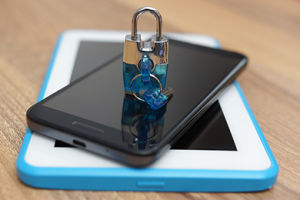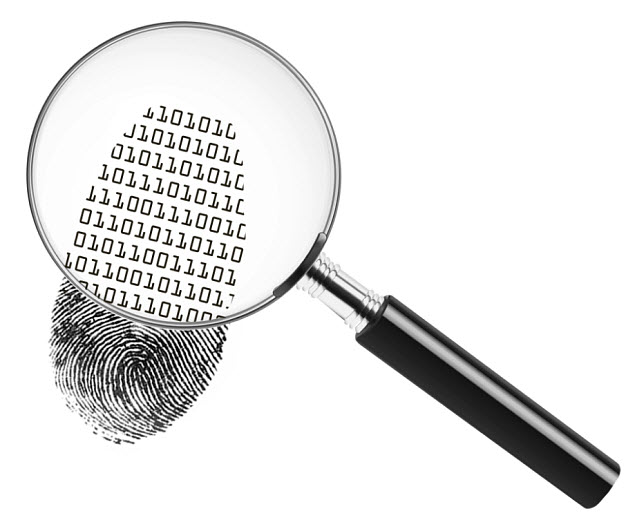Local, state and federal agencies are using October to educate businesses, organizations and individuals.
October is National Cyber Security Awareness Month in the United States. Agencies at a federal, state and local level use this time to provide education about safe internet use. It is applicable to everyone from individuals to companies, organizations, charities, schools, universities and anyone else who connects to the internet.
This is a concern that is familiar to computer users but mobile security remains a low priority for many.
Despite the fact that many people are aware that their mobile devices can be hacked, the most basic steps are often ignored. A large portion of the population still has not taken the most primary steps to protect their mobile devices. For example, many people have not created a password to lock their devices. Moreover, those who have a mobile antivirus app installed remain in the minority. Cyber Security Awareness Month is designed to help improve this situation.
There are many threats that Mobile Security Awareness Month is hoping people will begin to recognize.
 Among the threats faced by mobile device users include: identity theft, viruses, phishing attempts, and online harassment. October is a good time for people to think about these concerns and take action to protect themselves against them.
Among the threats faced by mobile device users include: identity theft, viruses, phishing attempts, and online harassment. October is a good time for people to think about these concerns and take action to protect themselves against them.
Many of these efforts are exceptionally easy to implement and use. For instance:
• Parents can speak with their children about staying safe when using a mobile phone or tablet.
• Computers, smartphones and tablets should have antivirus and firewall software installed and activated.
• The added security features built right into the majority of smeartphones should be activated and used.
• Apps should be kept up to date for the most secure versions.
• Pay attention to suspicious ads, activities and behaviors and avoid opening or clicking on any of them.
• Back up files regularly and keep passwords strong – alternately use a secure password manager.
Cyber Security Awareness Month isn’t designed to frighten people. Only to educate them so they can keep their data safe. By taking these steps now, they will soon become second nature.
A new Deloitte study revealed that smartphone users in the country are using fingerprints as passwords.
British smartphone users have adopted biometric mobile security methods to a significant degree. Deloitte released a study indicating that 20 percent of smartphone users in Great Britain authenticate using fingerprints. This suggests that the general public is becoming increasingly comfortable with the concept.
The mobile security study was conducted with the participation of 4,000 consumers across Great Britain.
The biometric mobile security study was called “There’s no place like phone.” That report determined that among the respondents, 63 percent were using PINs and passwords for mobile phone authentication. Another 21 percent were using mobile device fingerprint sensors for that purpose.
 The report stated, “We expect ownership of fingerprint readers to continue increasing rapidly.” It also added that “Many millions of people are likely to acquire a handset with a fingerprint reader over the coming year (either as a new or second-hand phone) and some people who currently have a fingerprint reader may start using it, as more apps offer this functionality.”
The report stated, “We expect ownership of fingerprint readers to continue increasing rapidly.” It also added that “Many millions of people are likely to acquire a handset with a fingerprint reader over the coming year (either as a new or second-hand phone) and some people who currently have a fingerprint reader may start using it, as more apps offer this functionality.”
The report provided a number of reasons that biometric mobile security may be stronger than other forms.
It pointed out that using fingerprint authentication technology is quick, simple and inconspicuous. Moreover, its successful completion isn’t dependent on certain ambient conditions as is the case with many other forms of biometrics. Bright sunlight, for example, doesn’t reduce the effectiveness of this method. Similarly, a noisy room won’t change the accuracy of the scan. That said, according to the report, 2 percent of participants did use facial recognition or voice recognition to authenticate.
The outcome of this study is not unlike those from a prior Visa Europe study. That research indicated that people in Great Britain feel that they can trust government agencies and banks to keep their biometric data safe. As a result, they feel that they aren’t risking unauthorized access of their biometric mobile security data.
When those consumers were asked if they would trust this type of mobile security technology to confirm their identity, 85 percent said they would trust it with their banks. Another 81 percent would trust this method with certain payment methods. Seventy percent trust global online brands with this method. Finally, 64 percent said they would use this with their smartphone companies.
 Among the threats faced by mobile device users include: identity theft, viruses, phishing attempts, and online harassment. October is a good time for people to think about these concerns and take action to protect themselves against them.
Among the threats faced by mobile device users include: identity theft, viruses, phishing attempts, and online harassment. October is a good time for people to think about these concerns and take action to protect themselves against them.
 The report stated, “We expect
The report stated, “We expect 